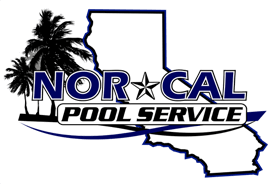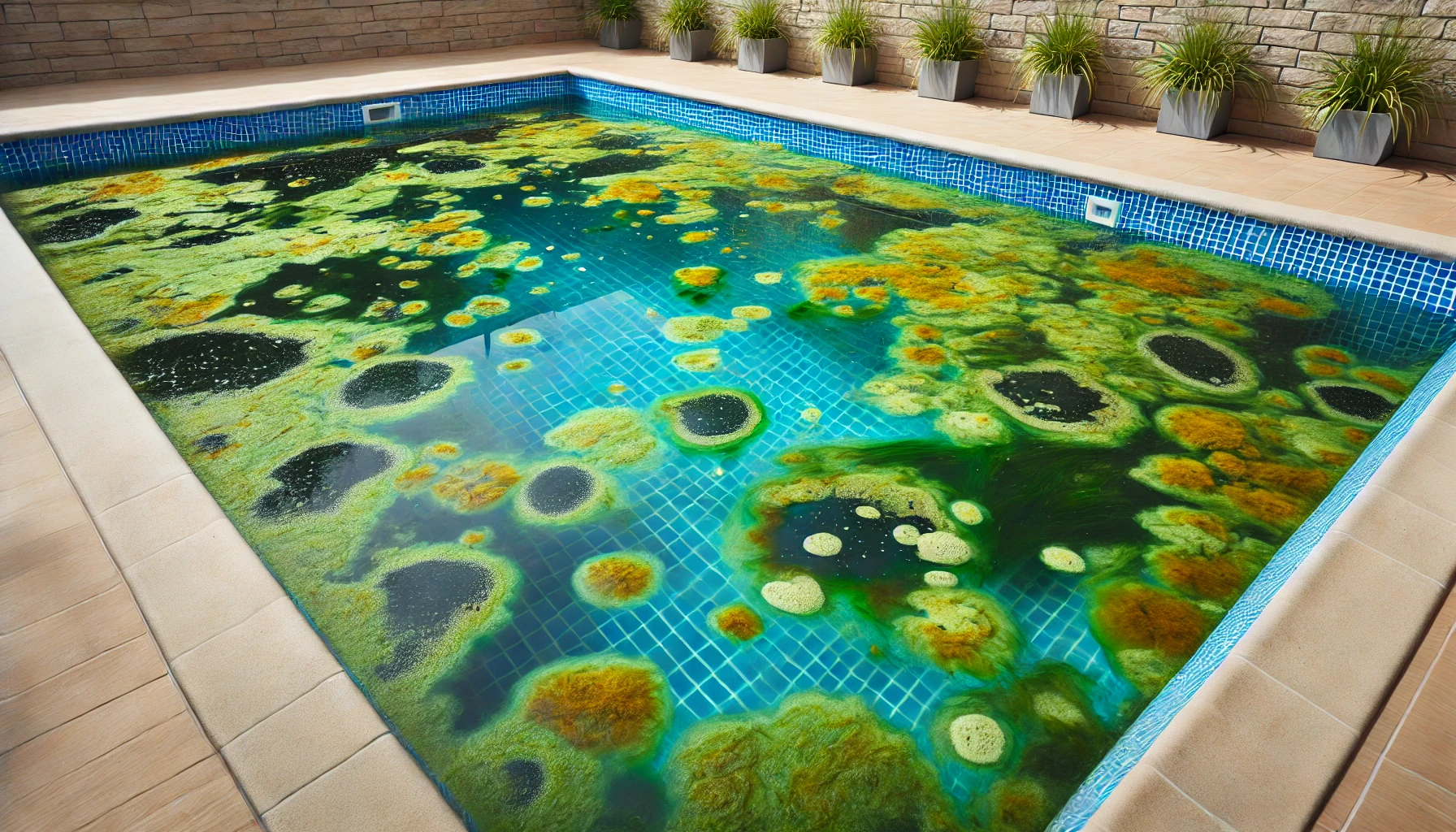Algae in Swimming Pools: An Informative Guide
What is Algae? Algae are simple, plant-like organisms that thrive in water. They can be microscopic or visible to the naked eye and are typically green, yellow, brown, or black. In swimming pools, algae are unwanted invaders that can cause numerous problems.
Types of Algae:
- Green Algae: The most common type, easily seen as a green tint in the water or on surfaces. It is typically free-floating but can also cling to pool walls and floors.
- Yellow (Mustard) Algae: This type is rarer and appears as yellow or brownish spots. It tends to cling more stubbornly to pool surfaces and is resistant to chlorine.
- Black Algae: The most difficult to eliminate, appearing as dark black or blue-green spots. It has deep roots that penetrate pool surfaces, making it resistant to standard chemical treatments.
- Pink Algae: Technically a type of bacteria, it appears as slimy pink or red growth and is often found in corners and crevices.
Causes of Algae Growth:
- Poor Circulation: Inadequate water movement allows algae to settle and multiply.
- Insufficient Filtration: A dirty or inefficient filter fails to remove algae spores from the water.
- Chemical Imbalance: Low chlorine levels or an imbalance in pH, alkalinity, or other chemicals provide a conducive environment for algae growth.
- Debris and Organic Matter: Leaves, dirt, and other organic matter in the pool can provide nutrients for algae.
- Warm Temperatures: Algae thrive in warm water, making pools more susceptible during the summer.
Prevention and Treatment:
- Maintain Proper Chemical Levels: Regularly test and adjust chlorine, pH, and alkalinity levels to keep the water balanced.
- Regular Cleaning: Brush and vacuum the pool surfaces regularly to remove algae spores and organic matter.
- Optimize Circulation and Filtration: Ensure your pool pump and filter are running efficiently. Clean or backwash the filter as needed.
- Shock Treatment: Periodically shock the pool with a high dose of chlorine to kill algae spores and other contaminants.
- Algaecides: Use algaecides as a preventive measure or to treat existing algae. Follow manufacturer instructions for safe and effective use.
- Cover the Pool: When not in use, covering the pool can help reduce debris and limit exposure to sunlight, which promotes algae growth.

